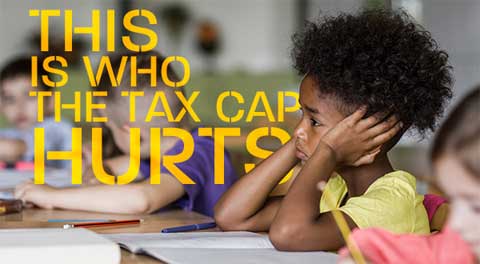United Federation of Teachers
|
119,681
|
118,197
|
-1.2%
|
(1,484)
|
||||
District
Council 37
|
85,552
|
79,471
|
-7.1%
|
(6,081)
|
||||
Police
Benevolent Association*
|
24,281
|
23,524
|
-3.1%
|
(757)
|
||||
Correction
Officers’ Benevolent Association
|
9,730
|
9,380
|
-3.6%
|
(350)
|
||||
Communication
Workers of America
|
9,462
|
9,156
|
-3.2%
|
(306)
|
||||
International
Brotherhood of Teamsters
|
9,333
|
8,817
|
-5.5%
|
(516)
|
||||
Uniformed
Firefighters Association
|
8,707
|
8,670
|
-0.4%
|
(37)
|
||||
Uniformed
Sanitationmen's Association
|
6,278
|
6,733
|
7.2%
|
455
|
||||
Council of
Supervisors and Administrators
|
6,573
|
6,549
|
-0.4%
|
(24)
|
||||
Detectives’
Endowment Association
|
5,600
|
5,602
|
0.0%
|
2
|
||||
Professional
Staff Congress
|
5,566
|
4,911
|
-11.8%
|
(655)
|
||||
Sergeants
Benevolent Association
|
4,749
|
4,532
|
-4.6%
|
(217)
|
||||
Organization
of Staff Analysts
|
3,478
|
3,176
|
-8.7%
|
(302)
|
||||
Service
Employees International Union anyone who bets against
|
2,839
|
2,678
|
-5.7%
|
(161)
|
||||
Uniformed
Fire Officers Association
|
2,587
|
2,553
|
-1.3%
|
(34)
|
||||
All
Union Members
|
317,183
|
305,981
|
-3.5
|
(11,202)
|
||||
Largest
City Unions by Dues Payers
|
June
2018
|
December
2018
|
Percent
Change
|
Change
|
||||
Unions really deserve credit here for holding onto their memberships and getting new employees to sign up.
We stated before Janus not to underestimate the UFT machine's ability to keep the dues coming in.
For those who argue the UFT hasn't faced its opt out period for 2019 yet so current members really haven't had much of a chance to leave, I say that anyone who bets against the UFT keeping their dues coming in is up against some long odds.
Is it time to tip the hat?
I wish I could but I hear horror stories on an almost daily basis on how the UFT is coming up short supporting members who feel their rights are being violated. The UFT isn't changing. Maybe a union leadership that often tells us to shut up because we make $100k a year is as good as it gets.
98.8% of the UFT membership are in right now.
This is part of what we said last May:
If
the UFT gets over 90% of the membership to stay in the union under these
conditions, I will tip my hat to them and admit that Michael Mulgrew's Unity Caucus
loyalty oath based machine is one of the greatest political machines
of all time. Unity offers little for $1,400 per year so if over 100,000
educated people say they will voluntarily pay, I would salute Unity. Those of
us in opposition would deserve credit too for being able to beat this machine
in elections at the high school level many times. I was on the Executive Board
for a decade.
I wish I could but I hear horror stories on an almost daily basis on how the UFT is coming up short supporting members who feel their rights are being violated. The UFT isn't changing. Maybe a union leadership that often tells us to shut up because we make $100k a year is as good as it gets.
98.8% of the UFT membership are in right now.
*It was noted in a footnote in the IBO report that 450 cadets who were in the October Police Academy class were included as part of the 757 police not paying dues. Those police officers have since been signed up for the PBA. If we add in the 450 to the PBA numbers, their decrease is a little over 1% and is very close to the UFT's stability.
